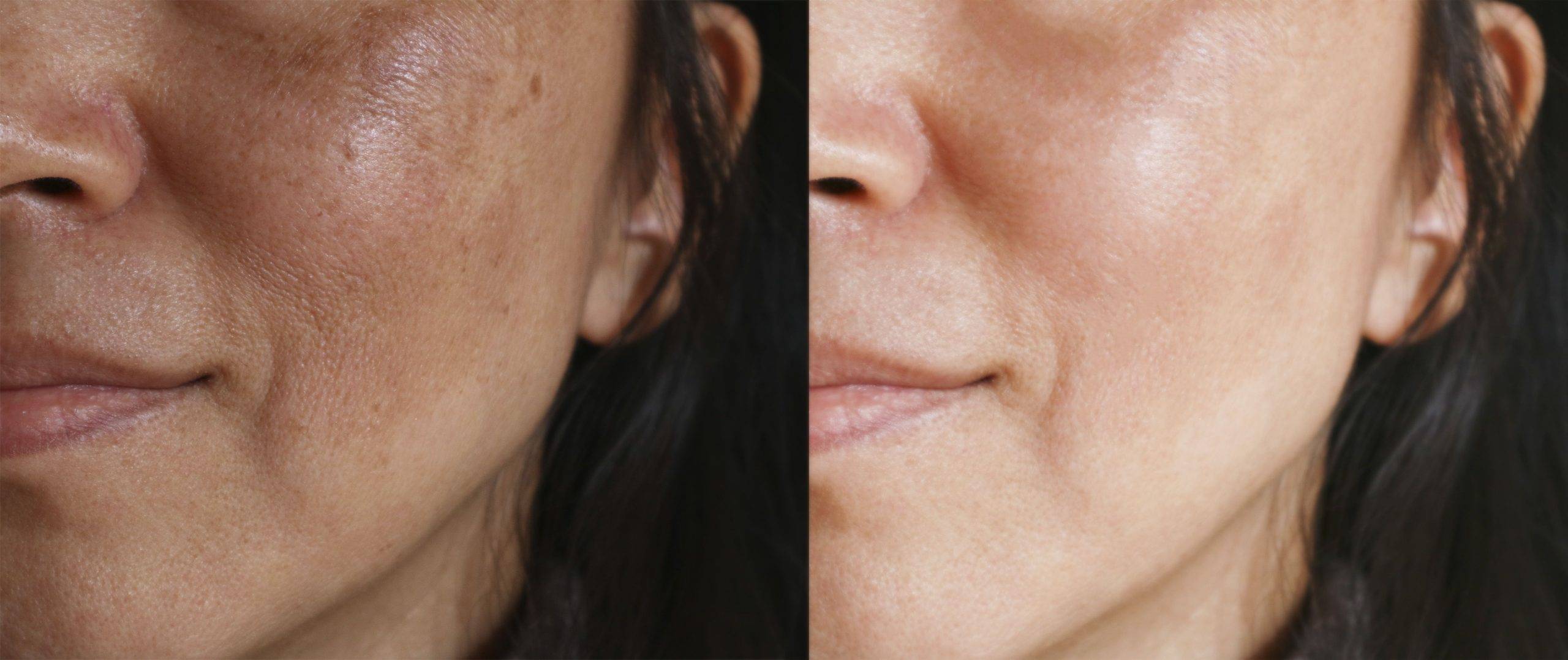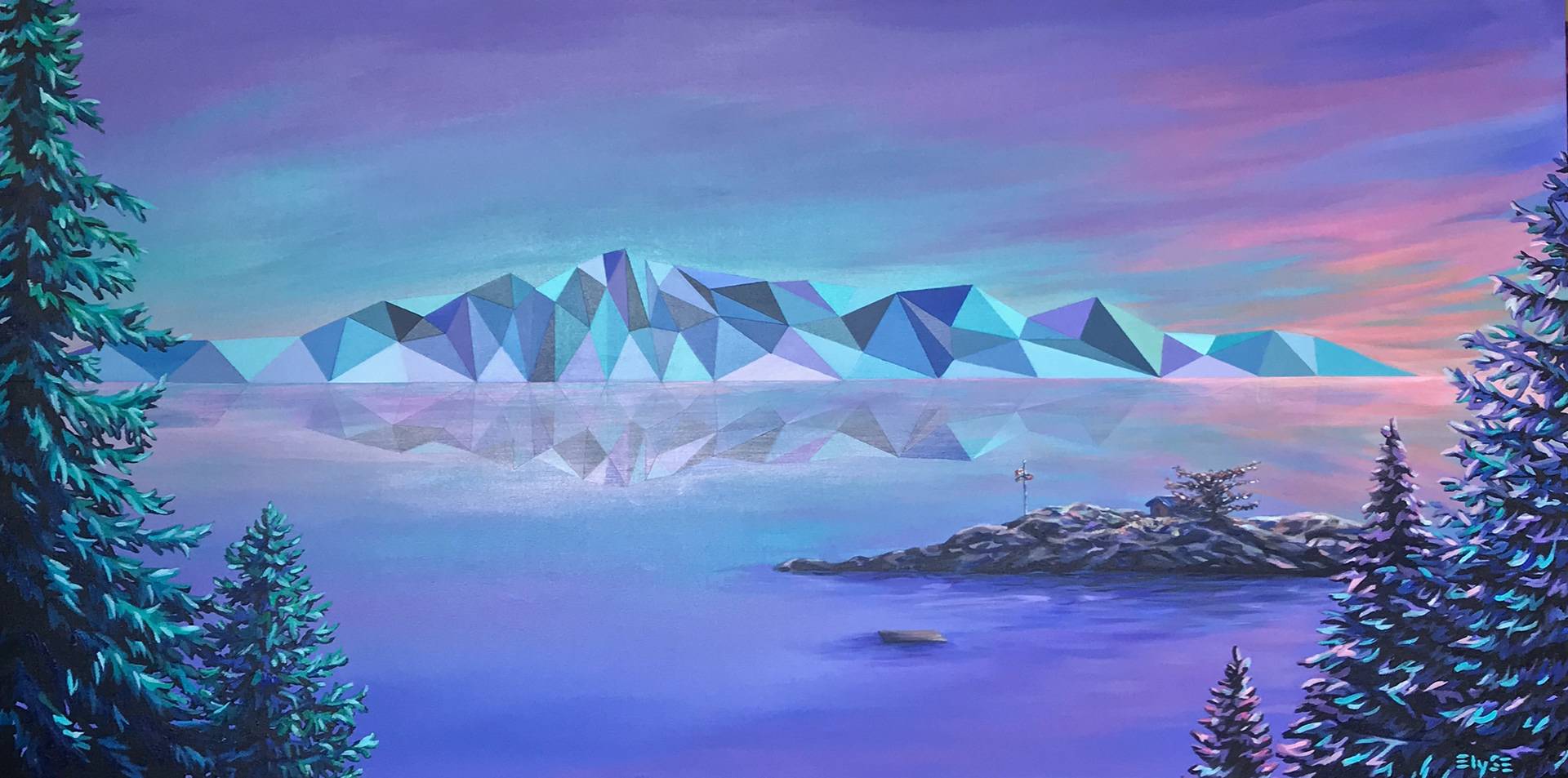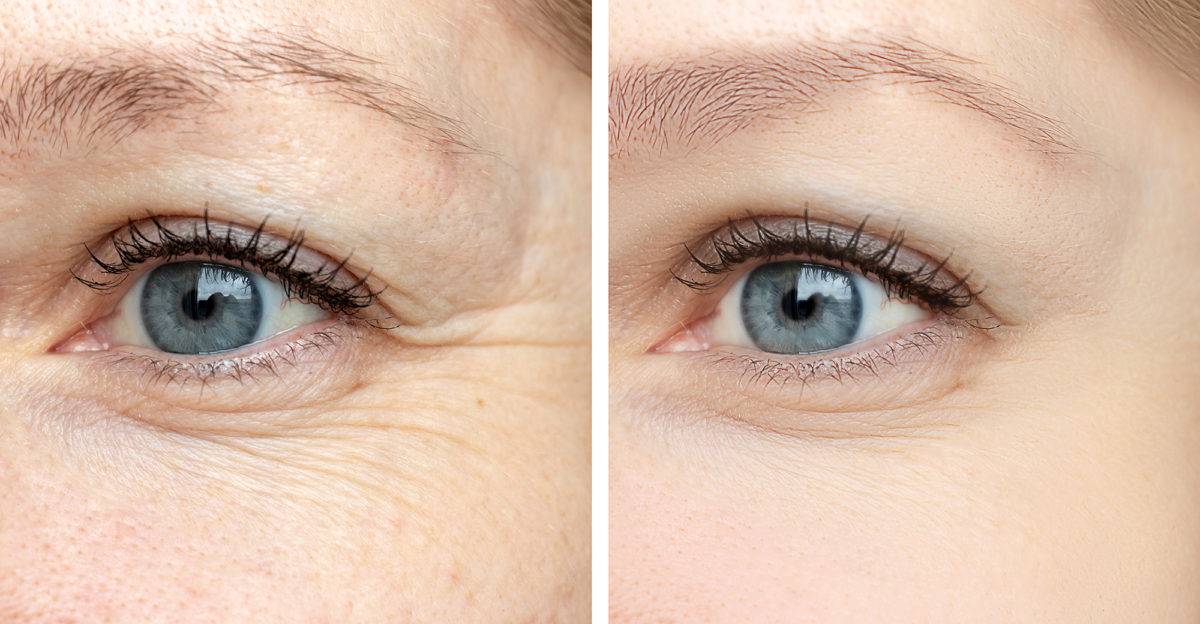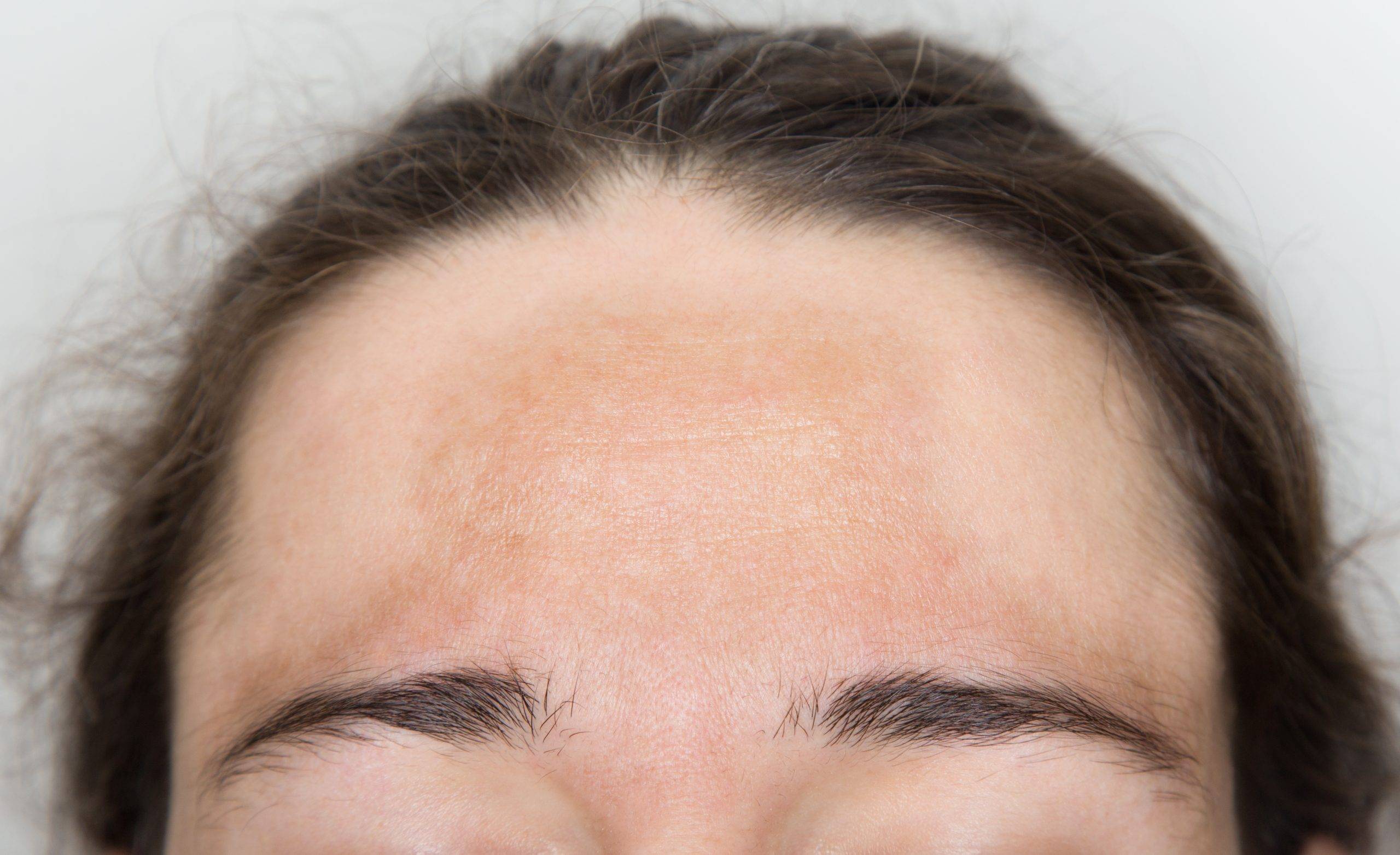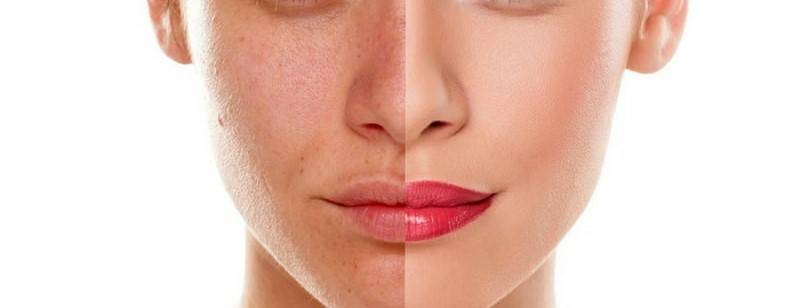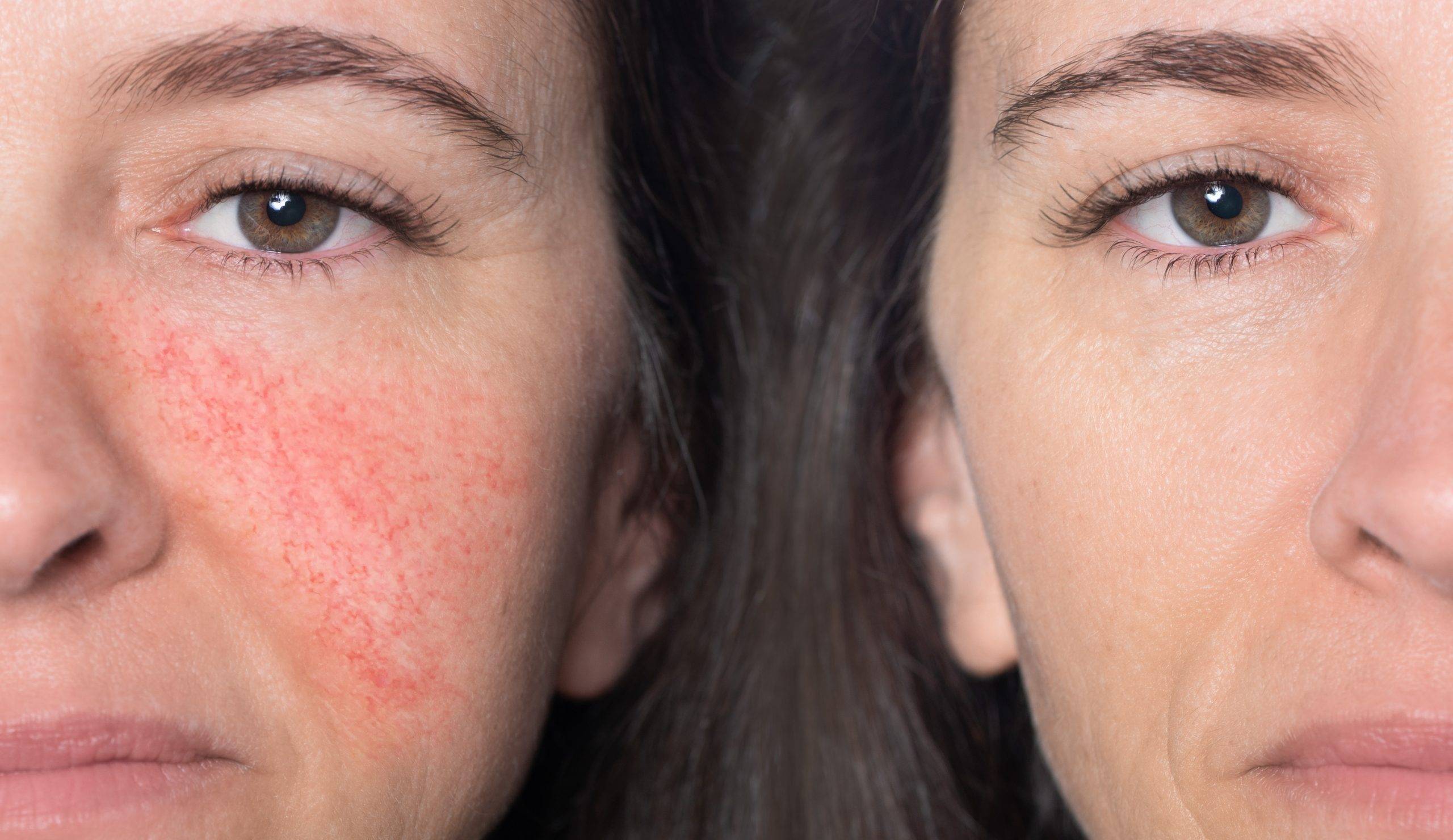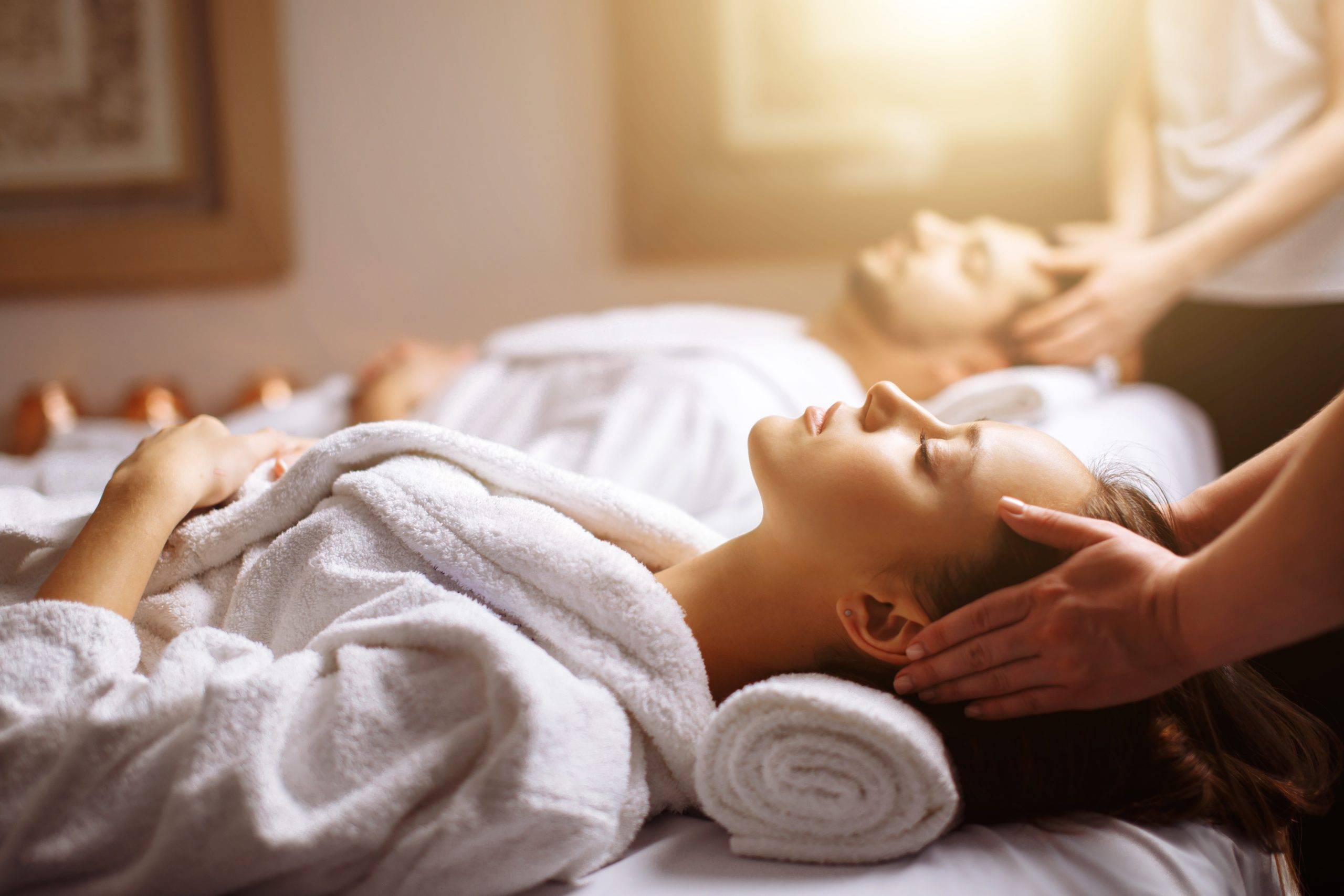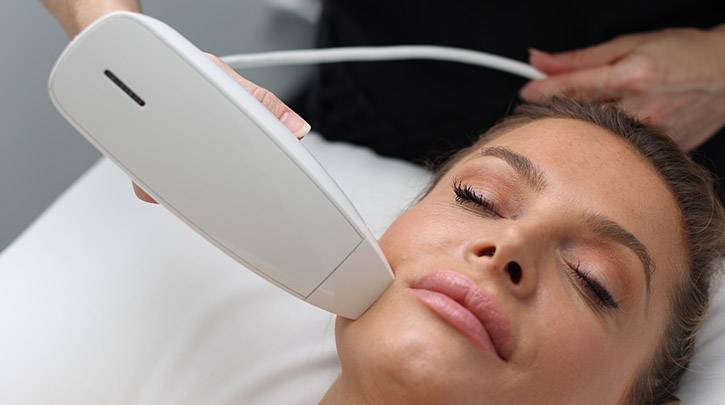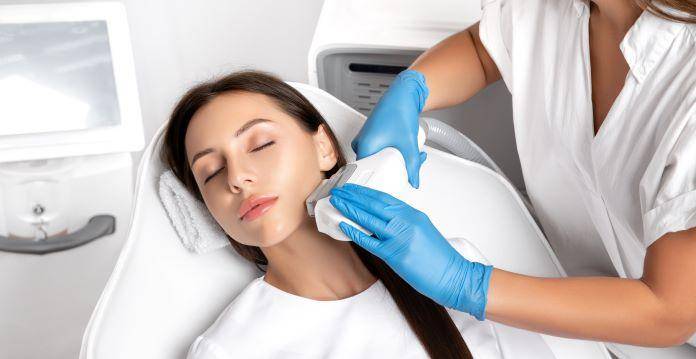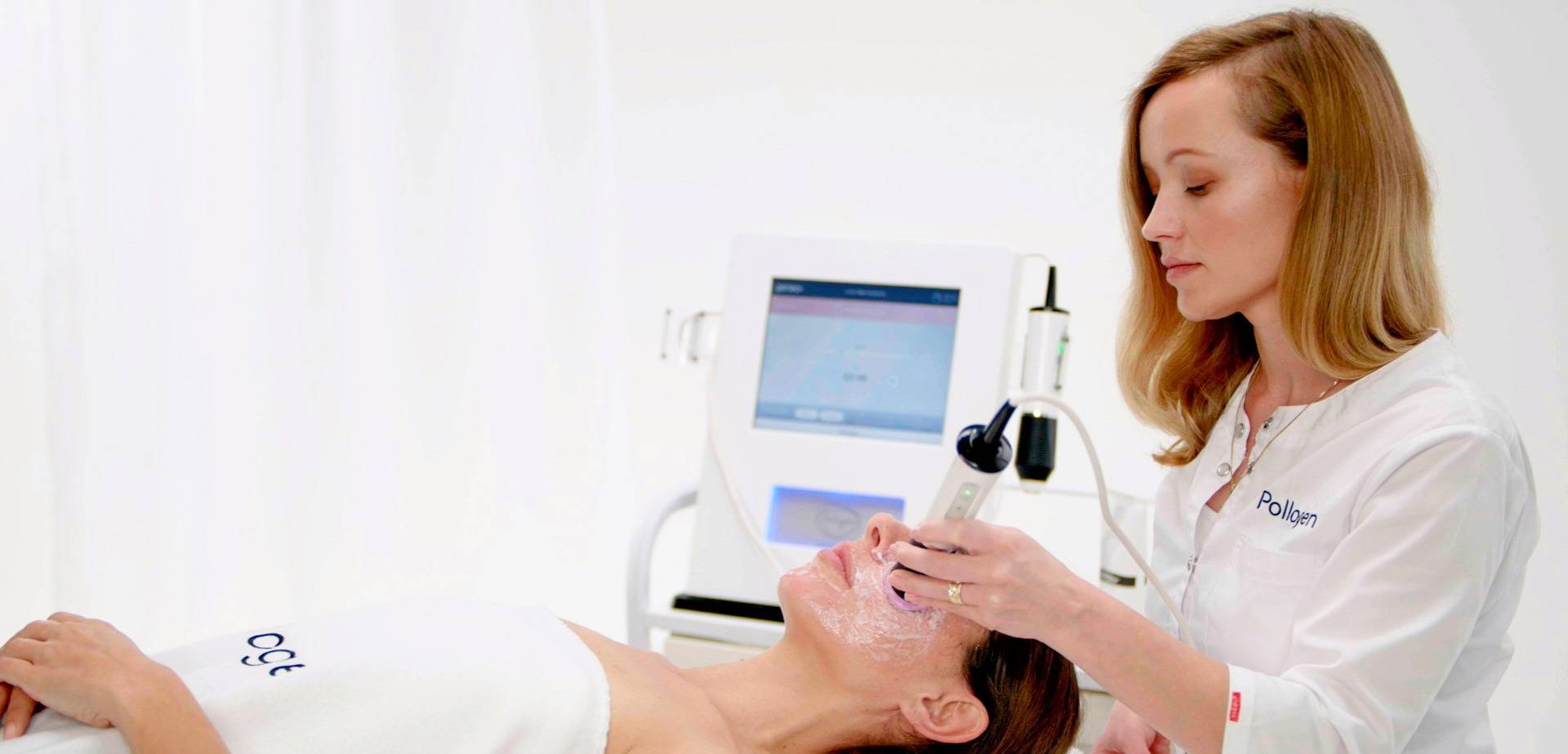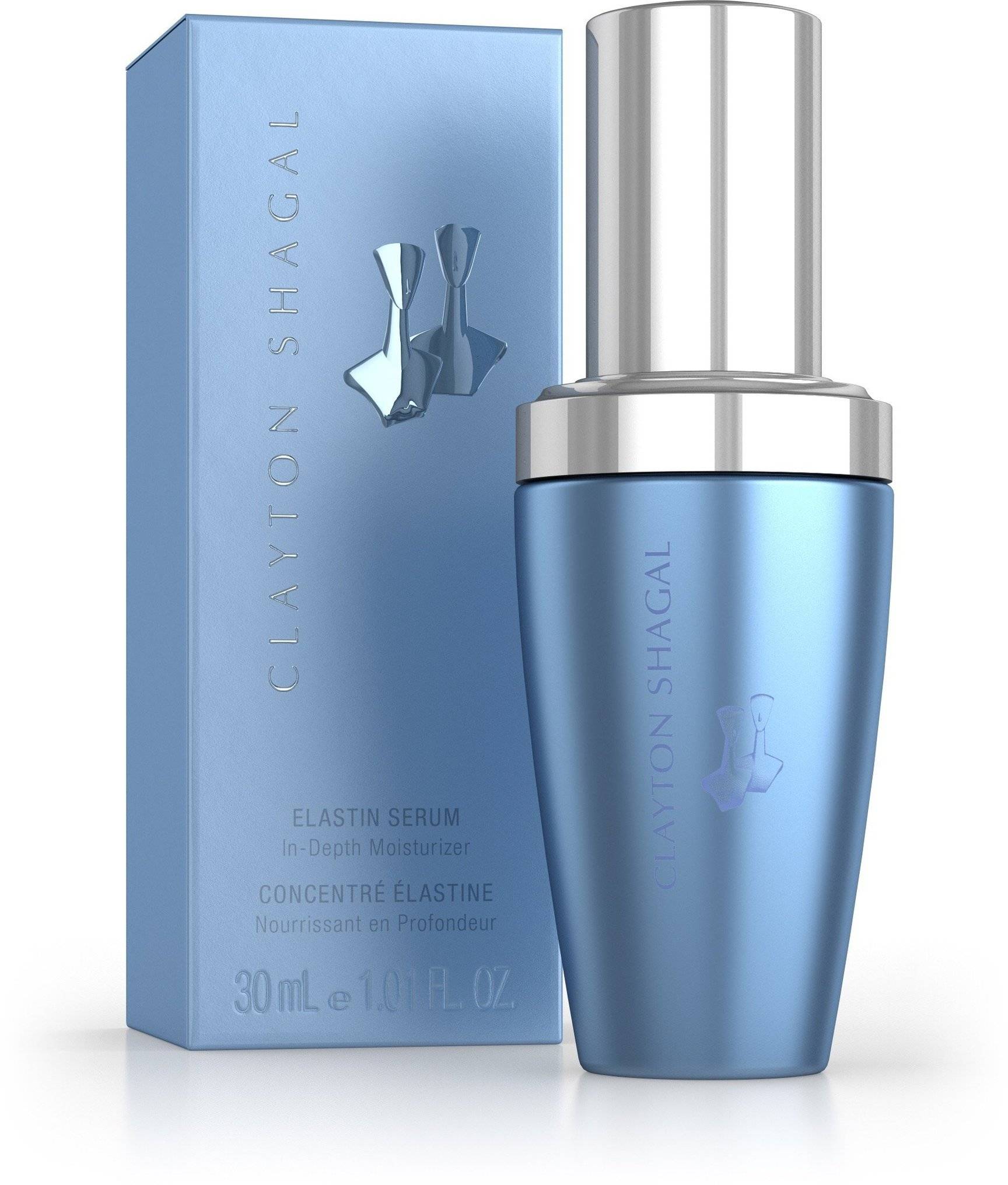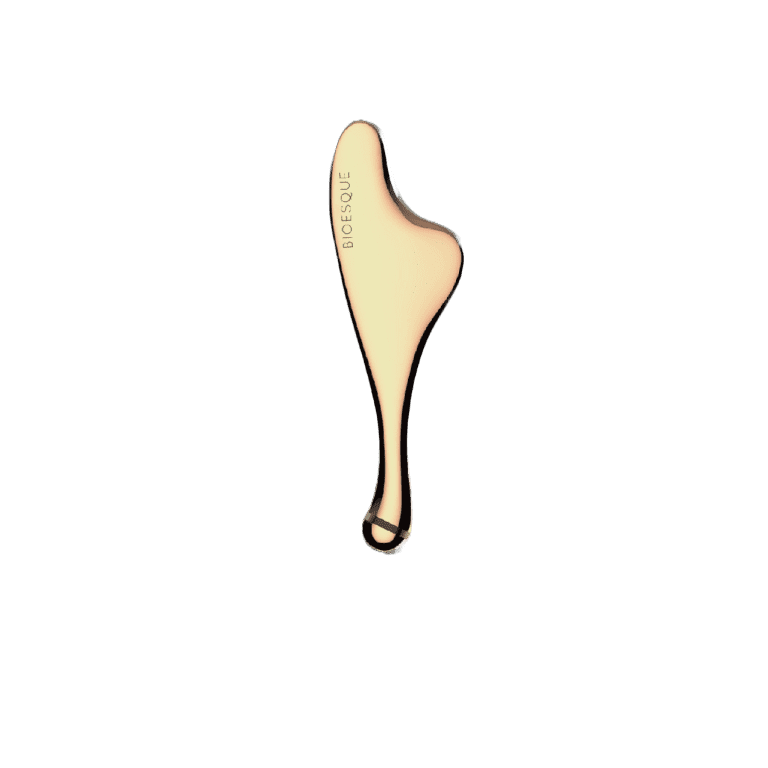適合所有皮膚類型和膚色的綜合護膚指南 – 秋季版
selfology.co/skincare
≡ Loose Skin, Sagging Skin, Lack of Firmness
The best way to care
selfology.co/skincare
Φ 皮膚鬆弛 / 缺乏彈性和彈性
Explore our collection of various skin conditions through detailed images and descriptions.
What is Loose Skin, Sagging Skin, Lack of Firmness?
Firm skin can stretch and snap back into place easily. When skin loses this ability, it starts to sag. Saggy skin can happen almost anywhere on the body. Common areas where you might see saggy skin include:
eyelids
jowls
chin
throat
upper arms
stomach
Symptoms That May Accompany Saggy Skin
Loose skin is not a medical condition itself, but a sign of skin aging or other forms of skin damage. The areas most prone to skin sagging are your stomach, face, neck, arms, legs, and hips.
Flappy, hanging skin is accompanied by the following symptoms:
Fine lines and wrinkles, especially on the face
Loss of skin color, which makes it look increasingly pale or pigmented
Increased skin sensitivity
What are the causes?
Aging
As skin ages, it loses two important proteins manufactured in the dermis — elastin and collagen.
As its name suggests, elastin gives skin elasticity. It provides firm skin with the ability to bounce back when stretched.
Collagen is produced by fibroblasts. When skin is taut and firm, it has collagen to thank. Collagen is comprised of tightly-constructed fibers, which help skin maintain its structure and firmness.
Both elastin and collagen production decline as people age. These two proteins can also become deteriorated by external factors over time, such as:
UV exposure
pollutants in the environment, including cigarette smoke
certain lifestyle factors, such as poor nutrition and drinking alcohol to excess
Too much sun exposure and not taking care of your skin or health can speed up the process of skin aging. This can make your skin look saggy and wrinkled at a younger age.
Weight loss
Carrying extra weight for an extended period of time can cause damage to the collagen and elastin fibers in your skin. This makes it harder for skin to snap back when you lose weight. If you lose a significant amount of weight of 100 pounds or more, significant amounts of saggy skin may result.
Sagging skin is more likely to occur when weight loss is rapid, such as after bariatric surgery. In some instances, these weight loss procedures may result in large amounts of sagging, drooping skin that hangs on the body.
Since younger skin bounces back more readily, your age at the time of weight loss can also play a role in how saggy your skin becomes.
Pregnancy
Acquiring some degree of saggy, loose skin is common after pregnancy. Women who carry multiples, such as twins or triplets, may see more sagging skin around the abdomen than those who carry one baby. Maternal age may also play a role.
Illness
There are a few medical conditions that are marked by saggy skin. One of these is a very rare subtype of cutaneous T-cell lymphoma, known as granulomatous slack skin.
People with this condition see a very gradual slackening of skin on the elbows and knees. Saggy skin caused by granulomatous slack skin does not typically respond well to treatment.
Ehlers-Danlos syndrome
Another condition that causes saggy skin is Ehlers-Danlos syndrome (EDS), a rare, connective tissue disorder that is inherited. People with EDS have a defect in collagen production that results in saggy, doughy skin, often on the face.
Recommended Treatment for Loose Skin, Sagging Skin, Lack of Firmness
- Venus Viva Nano Fractional Radio Frequency Skin Resurfacing
- Venus Viva 4D Diamond Polar™ Skin Tightening + Active Collagen Facial
- One Love IPL Treatment for Full Face & Neck with Choice of Selfology Healing Facial
- OxyGeneo Facial
- Anti-Aging & Firming Radio Frequency Facial
- Four Advanced Medical Facial Treatments (w/ Super Collagen Healing Facial) Choose Any Combination from (a) One Love IPL Treatment for Full Face & Neck w/ Selfology Healing Facial OR (b) Diamond Polar Skin Tightening Treatment (30 mins)
- Botulinum Toxin Injection ( BOTOX®)
Recommended Rosacea/Product for Loose Skin, Sagging Skin, Lack of Firmness
- Clayton Shagal Clinical Elasthy Extract
- Clayton Shagal Clinical Colhy Extract
- Clayton Shagal Hyaluronic Acid Serum
- Clayton Shagal Idratense Cream
- Clayton Shagal Nutri Sublime Cream
- Clayton Shagal Illumine Cream
- Clayton Shagal Cucumber and Avocado Mask
- Clayton Shagal AHA Exfoliating Mask
- Clayton Shagal Elastin Serum
- Clayton Shagal AHA Scrub
- Clayton Shagal Bamboo and Honey Exfoliant
- Clayton Shagal Milk Cleanser
- Clayton Shagal Collagen Serum
- Clayton Shagal Clinical Colhy Gel
- Clayton Shagal Clinical Elasthy Gel
- Clayton Shagal Collagen Gel Plus
- Clayton Shagal Elastin Gel Plus
- TIZO ULTRA ZINC BODY & FACE SUNSCREEN non-tinted dewy finish SPF 40
- TIZO2® FACIAL PRIMER SUNSCREEN Non-Tinted Matte Finish SPF 40
- Satin Smooth LuxGold Foil Sheet Mask
- Satin Smooth Luxgold Under Eye Sheet Mask
- Engel Gesicht Hyaluronic Acid Collagen Sheet Face Mask
- RVB ICON TIME SUPERMASK Anti-Age Repairing Mask
- RVB ICON TIME SUPERMASK Soothing Relax Mask for Eyes and Critical Points
≡ Combination Skin
The best way to care for Combination Skin
Φ 混合型皮膚
Table of Contents
What is Combination Skin?
Combination skin is simply having oily skin in some areas of your face and dry skin in other areas. Typically, there’s a mix of oily and dry areas on different parts of your face, with the t-zone (forehead, nose, and chin) being slightly to very oily.
Whether you have oily areas only around the nose and center of the forehead and dry areas over the cheeks, jaw area, and along the hairline, what you do to lessen those problems is the same.
How do I Know if I Have Combination Skin
In general, the nose, chin, and forehead of those with combination skin have more active oil glands, which is why these areas may be prone to clogged pores. The cheeks, on the other hand, may have less active oil glands, which is why they may appear dry and flaky
Do You Notice These Issues?
If you have combination skin, you probably already know what the problems are, but here are the main ones you may experience:
• Clogged pores in the T-zone area
• Large pores in the T-zone area
• Shininess and oily skin in the T-zone area
• Dry, flaky and dull cheeks
• Cheeks and neck that are more sensitive to cleansers
What Causes Combination Skin?
A variety of factors can contribute to combination skin, but more often than not, it just comes down to the luck of the draw in terms of what you inherited from your parents. However, the types of skincare products you’re using can absolutely make it worse or even cause the problem. Read on to learn what you might unknowingly be doing to contribute to making combination skin more of an issue.
As you might already have suspected, using products that contain harsh or skin-aggravating ingredients will inevitably dry out some areas of your face while stimulating oil production in other parts (especially around the nose) that were already oily.
If you’re using the wrong products, you might actually be causing your combination skin. If you use the right products, you may still have some amount of oily skin, but at least you won’t have dry, rough skin underneath excess oil. Once you start using the right products, your skin can improve almost immediately, with the dry areas softened and smoothed and the oily areas less oily and red—plus minimized pores.
Recommended Treatment for Combination Skin
- One Love IPL Treatment for Full Face & Neck with Choice of Selfology Healing Facial
- OxyGeneo Facial;#Four Advanced Medical Facial Treatments (w/ Super Collagen Healing Facial) Choose Any Combination from (a) One Love IPL Treatment for Full Face & Neck w/ Selfology Healing Facial OR (b) Diamond Polar Skin Tightening Treatment (30 mins)
- Brightening Facial
- Purify Facial
- One Love Facial with Hydrating Eye & Lip Mask
- One Love Facial, Full Body Exfoliation, Hydrating Eye & Lip Mask;#Hydrafill Facial – Needleless Mesotherapy
- Venus Viva Nano Fractional Radio Frequency Skin Resurfacing
Recommended Rosacea/Product for Combination Skin
- Clayton Shagal Hyaluronic Acid Serum
- Clayton Shagal Ultra Matifying Cream
- Clayton Shagal Hydra Light Cream
- Clayton Shagal AHA Exfoliating Mask
- Clayton Shagal Mokaccino Mask
- Clayton Shagal Moisturizing Mask
- Clayton Shagal AHA Scrub
- Clayton Shagal Oat Bran Scrub
- Clayton Shagal Collagen Gel Plus
- Clayton Shagal Elastin Gel Plus
- Clayton Shagal Collagen Gel
- Clayton Shagal Elastin Gel
- Clayton Shagal Hydra One Cream
- Clayton Shagal Gel Lotion Cleanser
- TIZO2® FACIAL PRIMER SUNSCREEN Non-Tinted Matte Finish SPF 40
≡ Hyperpigmentation
The best way to treat Hyperpigmentation
Φ 色素沉著(面部)
Table of Contents
What is Hyperpigmentation?
Hyperpigmentation isn’t necessarily a condition but a term that describes skin that appears darker. It can: occur in small patches over large areas affect the entire body.
While increased pigmentation usually isn’t harmful, it can be a symptom of another medical condition. Learn about types of hyperpigmentation, causes, and how to treat it.
What are the types of Hyperpigmentations?
There are several types of hyperpigmentation, the common ones being melasma, sunspots, and post-inflammatory hyperpigmentation.
Melasma. Melasma is believed to be caused by hormonal changes and may develop during pregnancy. Areas of hyperpigmentation can appear on any area of the body, but they appear most commonly on the stomach and face.
Sunspots. Also called liver spots or solar lentigines, sunspots are common. They’re related to excess sun exposure over time. Generally, they appear as spots on areas exposed to the sun, like the hands and face.
Post-inflammatory hyperpigmentation. This is a result of injury or inflammation to the skin. A common cause of this type is acne.
What are the symptoms and risk factors?
Darkened areas on the skin are the main symptoms of hyperpigmentation. Patches can vary in size and develop anywhere on the body.
The biggest risk factors for general hyperpigmentation are sun exposure and inflammation, as both situations can increase melanin production. The greater your exposure to the sun, the greater your risk of increased skin pigmentation.
Depending on the type of disorder, other risk factors for hyperpigmented patches may include: oral contraceptive use or pregnancy, as seen with melasma darker skin type, which is more prone to pigmentation changes drugs that increase your sensitivity to the sunlight trauma to the skin, such as a wound or superficial burn injury.
What causes hyperpigmentation?
A common cause of hyperpigmentation is an excess production of melanin.
Melanin is a pigment that gives skin its color. It’s produced by skin cells called melanocytes. Several different conditions or factors can alter the production of melanin in your body.
Certain medications can cause hyperpigmentation. Also, some chemotherapy drugs can cause hyperpigmentation as a side effect.
Pregnancy changes hormone levels and can affect melanin production in some women.
The hyperpigmentation is a direct result of an increased level of a hormone in your body that results in increased melanin synthesis.
Excessive sun exposure can also cause an increase in melanin.
Recommended Treatment for Hyperpigmentation
- One Love IPL Treatment for Full Face & Neck with Choice of Selfology Healing Facial
- OxyGeneo Facial
- Four Advanced Medical Facial Treatments (w/ Super Collagen Healing Facial) Choose Any Combination from (a) One Love IPL Treatment for Full Face & Neck w/ Selfology Healing Facial OR (b) Diamond Polar Skin Tightening Treatment (30 mins)
- Angie 13.56 MHz Thermocoagulation
- Venus Viva 4D Diamond Polar™ Skin Tightening + Active Collagen Facial
- Brightening Facial
Recommended Product for Hyperpigmentation
- Clayton Shagal Clinical Elasthy Extract
- Clayton Shagal Clinical Colhy Extract
- Clayton Shagal Hyaluronic Acid Serum
- Clayton Shagal Idratense Cream
- Clayton Shagal Sensi Derm Cream
- Clayton Shagal Nutri Sublime Cream
- Clayton Shagal Illumine Cream
- Clayton Shagal AHA Exfoliating Mask
- Clayton Shagal Elastin Serum
- Clayton Shagal Mokaccino Mask
- Clayton Shagal AHA Scrub
- Clayton Shagal Bamboo and Honey Exfoliant
- Clayton Shagal Oat Bran Scrub
- Clayton Shagal Milk Cleanser
- Clayton Shagal Purifying Gel Cleanser
- Clayton Shagal Collagen Serum
- Clayton Shagal Clinical Colhy Gel
- Clayton Shagal Clinical Elasthy Gel
- Clayton Shagal Collagen Gel Plus
- Clayton Shagal Elastin Gel Plus
- Clayton Shagal Collagen Gel
- Clayton Shagal Elastin Gel
- TIZO ULTRA ZINC BODY & FACE SUNSCREEN non-tinted dewy finish SPF 40
- TIZO2® FACIAL PRIMER SUNSCREEN Non-Tinted Matte Finish SPF 40
- Nano White Effect Brightening Gel Masque
≡ Eczema
The best way to care for Eczema
Atopic Dermatitis
Φ 異位性皮膚炎, 濕疹
Table of Contents
What is Eczema?
Eczema, also called atopic dermatitis, is a common skin condition marked by itchy and inflamed patches of skin.
It’s often seen in babies and young children, appearing on the faces of infants. But eczema can come in a variety of types in children, teens, and adults. Read on to learn what causes the skin condition and how to treat its symptoms.
What are the symptoms of Eczema?
The main symptom of eczema is itchy, dry, rough, flakey, inflamed, and irritated skin. It can flare up, subside, and then flare up again.
Eczema can occur anywhere but usually affects the arms, inner elbows, backs of the knees, or head (particularly the cheeks and the scalp). It’s not contagious, and, in some cases, becomes less severe with age.
Other symptoms include:
intense itching
red or brownish-gray patches
small, raised bumps that ooze fluid when scratched
crusty patches of dried yellowish ooze, which can signal infection
thickened, scaly skin
Scratching eczema further irritates and inflames the skin. This can cause infections that must be treated with antibiotics.
What are the types of eczema?
When people refer to eczema, they usually mean atopic dermatitis, which is characterized as dry, itchy skin that often appears with a red rash. This is the most common and chronic type of eczema.
Other types include:
Contact dermatitis
Contact dermatitis is caused by contact with irritants. Burning, itching, and redness occur. The inflammation goes away when the irritant is removed.
Dyshidrotic dermatitis
Dyshidrotic dermatitis affects fingers, palms of the hands, and soles of the feet. It causes itchy, scaly patches of skin that flake or become red, cracked, and painful. The condition is more common in women.
Nummular dermatitis
Nummular dermatitis causes dry, round patches of skin in the winter months. It usually affects the legs. It’s more common in men.
What Causes Eczema?
The cause of eczema is not fully understood. However it is believed to be related to an overactive immune system that responds aggressively when exposed to irritants.
Eczema is sometimes caused by an abnormal response to proteins that are part of the body.
Normally, the immune system ignores proteins that are part of the human body and attacks only the proteins of invaders, such as bacteria or viruses.
In eczema, the immune system loses the ability to tell the difference between the two, which causes inflammation.
An eczema flare-up is when one or more eczema symptoms appear on the skin.
Common triggers of eczema flare-ups include:
- chemicals found in cleaners and detergents that dry out the skin
- rough scratchy material, like wool
- synthetic fabrics
- raised body temperature
- sweating
- temperature changes
- sudden drop in humidity
- stress
- food allergies
- animal dander
- upper respiratory infections
What are the risk factors of eczema?
Several factors can increase your risk of developing eczema.
Eczema is more common in children who suffer from asthma or hay fever, or adults who develop these conditions later, usually before the age of 30.
People with family members who have eczema are also at higher risk of developing the condition.
Recommended Treatment for Eczema
- Oceanic Facial
- Hydrafill Facial – Needleless Mesotherapy
- Soothing Facial – Needleless Mesotherapy
- One Love Facial with Hydrating Eye & Lip Mask
- Ocean Ninety – Full Body Massage & Active Collagen Facial
- Essential Facial
- Ocean Sixty (O60) – Full Body Massage with Option of Selfology Healing Facial
Recommended Resource/Product for Eczema
- Clayton Shagal Hyaluronic Acid Serum
- Clayton Shagal Cucumber and Avocado Mask
- Clayton Shagal Milk Cleanser
- Clayton Shagal Collagen Serum
- Clayton Shagal Hydra Derm Cream
- Clayton Shagal Clinical Colhy Gel
- Clayton Shagal Clinical Elasthy Gel
- Clayton Shagal Collagen Gel Plus
- Clayton Shagal Elastin Gel Plus
- Clayton Shagal Collagen Gel
- Clayton Shagal Elastin Gel
- Clayton Shagal Sensi Derm Cream
- TIZO2® FACIAL PRIMER SUNSCREEN Non-Tinted Matte Finish SPF 40
- TIZO ULTRA ZINC BODY & FACE SUNSCREEN non-tinted dewy finish SPF 40
≡ Rosacea
The best way to care for Rosacea
Φ 紅斑痤瘡 / 酒糟鼻
Table of Contents
What is rosacea?
Rosacea’s are small, red, pus-filled bumps on the skin that are present during flare-ups.
Typically, rosacea affects only skin on your nose, cheeks, and forehead.
What are the types of rosacea?
Four types of rosacea
Subtype one, known as erythematotelangiectatic rosacea (ETR), is associated with facial redness, flushing, and visible blood vessels.
Subtype two, papulopustular (or acne) rosacea, is associated with acne-like breakouts, and often affects middle-aged women.
Subtype three, known as rhinophyma, is a rare form associated with thickening of the skin on your nose. It usually affects men and is often accompanied by another subtype of rosacea.
Subtype four is known as ocular rosacea, and its symptoms are centered on the eye area.
Recommended Treatment for Rosacea
- Venus Viva Nano Fractional Radio Frequency Skin Resurfacing
- One Love IPL Treatment for Full Face & Neck with Choice of Selfology Healing Facial
- Four Advanced Medical Facial Treatments (w/ Super Collagen Healing Facial) Choose Any Combination from (a) One Love IPL Treatment for Full Face & Neck w/ Selfology Healing Facial OR (b) Diamond Polar Skin Tightening Treatment (30 mins)
- Hydrafill Facial – Needleless Mesotherapy;#Soothing Facial – Needleless Mesotherapy
- Timeless Facial – Needleless Mesotherapy
Recommended Rosacea/Product for Eczema
- Clayton Shagal Clinical Elasthy Extract
- Clayton Shagal Clinical Colhy Extract
- Clayton Shagal Hyaluronic Acid Serum
- Clayton Shagal Sensi Derm Cream
- Clayton Shagal Illumine Cream
- Clayton Shagal Cucumber and Avocado Mask
- Clayton Shagal Elastin Serum
- Clayton Shagal Oat Bran Scrub
- Clayton Shagal Gel Lotion Cleanser
- Clayton Shagal Milk Cleanser
- Clayton Shagal Collagen Serum
- Clayton Shagal Clinical Colhy Gel
- Clayton Shagal Clinical Elasthy Gel
- Clayton Shagal Collagen Gel Plus
- Clayton Shagal Elastin Gel Plus
- Clayton Shagal Collagen Gel
- Clayton Shagal Elastin Gel
- Clayton Shagal Hydra Derm Cream
- TIZO2® FACIAL PRIMER SUNSCREEN Non-Tinted Matte Finish SPF 40
- TIZO ULTRA ZINC BODY & FACE SUNSCREEN non-tinted dewy finish SPF 40
- Nano White Effect Brightening Gel Masque
≡ Dull Skin
The best way to care for Dull Skin
Φ
Table of Contents
What is Dull Skin?
Dull skin is skin that looks lacklustre, flat, or even grey, and may even feel rough or bumpy to the touch. What causes dull skin? It’s the result of dead skin cell build-up on the surface of your skin, and it can happen at any age and in any weather.
What are the symptoms of Dull Skin?
Dull skin may be accompanied by the following signs and symptoms:
- Uneven skin tone
- Roughness in the skin
- Lack of skin elasticity
- Fine lines
- Discoloration
- Sagginess or wrinkling
- Lentigines and age spots
- Dryness
- Itchiness
- Dark undereyes
What Causes Dull Skin?
Dry skin
Think about how a dried, shriveled up apple looks compared to a fresh one full of moisture—the same idea is what happens to your skin when it’s dehydrated. Without moisture, the skin becomes dry and dehydrated, which can in turn leave it looking dull. Dry skin also makes fine lines and wrinkles look even more harsh.
Not enough moisturizer, dry climates, long hot showers, and indoor air can all contribute to drying out your skin.
Excess Dead Skin Cells
The skin naturally sheds away dead skin cells but as you age that rate at which that happens slows down. When these dead skin cells start to build up it blocks the fresh, new skin underneath from shining through.
Aging
As we age, the amount of moisturizer our skin naturally produces decreases along with collagen production (aka what makes babies faces so plump), while melanin production increases, leading to more dark spots for an uneven skin tone.
Environmental Damage
Sun exposure and environmental pollution produce free radicals in the skin that harm cells and can also lead to excess pigment, loss of collagen, and skin damage.
Stress
Chronic stress leads to increased cortisol in the body and skin, which contributes to increased inflammation of the skin.
Cortisol increase in these cases can also worsen inflammatory skin conditions, like rosacea and acne, but can also contribute to an uneven, dull complexion.
Recommended Treatment for Dull Skin
- Venus Viva 4D Diamond Polar™ Skin Tightening + Active Collagen Facial
- OxyGeneo Facial
- Anti-Aging & Firming Radio Frequency Facial
- Brightening Facial
- One Love Facial with Hydrating Eye & Lip Mask
- One Love Facial, Full Body Exfoliation, Hydrating Eye & Lip Mask
Recommended Resource/Product for Dull Skin
- Clayton Shagal Clinical Elasthy Extract
- Clayton Shagal Clinical Colhy Extract
- Clayton Shagal Illumine Cream
- Clayton Shagal AHA Exfoliating Mask
- Clayton Shagal Elastin Serum
- Clayton Shagal Mokaccino Mask
- Clayton Shagal AHA Scrub
- Clayton Shagal Oat Bran Scrub
- Clayton Shagal Purifying Gel Cleanser
- Clayton Shagal Collagen Serum
- Nano White Effect Brightening Gel Masque
- Clayton Shagal Clinical Colhy Gel
- Clayton Shagal Clinical Elasthy Gel
- Clayton Shagal Collagen Gel Plus
- Clayton Shagal Elastin Gel Plus
- Clayton Shagal Collagen Gel
- Clayton Shagal Elastin Gel
≡ Broken Capillaries
The best way to care for Broken Capillaries
(aka Telangiectasia)
Φ 毛细血管破裂
Table of Contents
What are Broken Capillaries?
Broken capillaries are also called “spider veins” — occur when they are dilated, or enlarged, just beneath your skin’s surface. This results in small, red lines that spread out into a web-shaped form. They can develop anywhere on the body, but they’re more common on the face and legs.
While harmless, Broken Capillaries can become a nuisance if they make you self-conscious. Spider veins are treatable and it all begins with exploring the underlying causes.
What are the symptoms of Broken Capillaries?
Broken capillaries are tiny blood vessels that have burst under the skin that can appear in any location on the body, but are especially noticeable in the nose area or other regions of the face.
The red veins take on the shape of spiderwebs, which is why they are also called “spider veins.”
What Causes Broken Capillaries and risk factors of Broken Capillaries?
Some people tend to develop spider veins more than others. The fact is that broken capillaries can happen to anyone at any age, including children. Your risk factors depend on the particular cause.
There are many causes of broken blood vessels on the face. They include:
Heredity and genetics
For unknown reasons, spider veins tend to run in families. Individual risk factors also increase with age.
Pregnancy
An increase in estrogen hormones during pregnancy can lead to broken blood vessels. Pregnancy-related spider veins heal on their own after delivery. Skin changes are common in pregnancy.
Rosacea
This common skin condition leads to excessive redness and flushing. With erythematotelangiectatic rosacea, broken blood vessels are common.
Sun exposure
Excessive sun exposure can enlarge your blood vessels. If you get a sunburn, the top layer of skin may peel and temporarily make some of the blood vessels in your face more noticeable.
Weather changes
Hot weather increases blood vessel dilation.
Environmental or chemical irritants.
Alcohol consumption
Moderate or occasional alcohol consumption can cause your skin to flush due to the enlargement of blood vessels. Binge drinking and heavy alcohol use can eventually lead to spider veins.
Injuries. Minor to significant injuries can lead to bruising. With bruises on your face, broken blood vessels may also be noticeable.
Vomiting or sneezing
Sudden, extreme pressure in your face from a violent sneeze or a vomiting spell can break the blood vessels in the skin.
Recommended Treatment for Broken Capillaries
- Soothing Facial – Needleless Mesotherapy;#Timeless Facial – Needleless Mesotherapy
- One Love Facial with Hydrating Eye & Lip Mask
Recommended Resource/Product for Broken Capillaries
- Clayton Shagal Clinical Elasthy Extract
- Clayton Shagal Clinical Colhy Extract
- Clayton Shagal Hyaluronic Acid Serum
- Clayton Shagal Sensi Derm Cream
- Clayton Shagal Cucumber and Avocado Mask
- Clayton Shagal Elastin Serum
- Clayton Shagal Oat Bran Scrub
- Clayton Shagal Milk Cleanser
- Clayton Shagal Collagen Serum
- TIZO2® FACIAL PRIMER SUNSCREEN Non-Tinted Matte Finish SPF 40
- TIZO ULTRA ZINC BODY & FACE SUNSCREEN non-tinted dewy finish SPF 40
- Nano White Effect Brightening Gel Masque
- Clayton Shagal Hydra Derm Cream
- Clayton Shagal Clinical Colhy Gel
- Clayton Shagal Clinical Elasthy Gel
- Clayton Shagal Collagen Gel Plus
- Clayton Shagal Elastin Gel Plus
- Clayton Shagal Collagen Gel
- Clayton Shagal Elastin Gel
≡ Dehydrated Skin
The best way to care for Dehydrated Skin
Table of Contents
What is Dehydrated Skin?
Dehydrated skin means that your skin is lacking water. It can be dry and itchy and perhaps dull looking, too.
Your overall tone and complexion may appear uneven, and fine lines are more noticeable.
While dehydrated skin can be a nuisance, it’s relatively easy to treat with the right lifestyle changes.
Treatment begins from the inside out to replenish and maintain hydration throughout your body.
Dehydrated skin can appear dry, but it’s not the same has having a dry skin type.
What are the symptoms of Dehydrated Skin?
The symptoms of dehydrated skin can include:
- a feeling of tightness
- mild to severe flaking and scaling
- rough skin texture
- sensitivity, itchiness and inflammation
Fine lines dehydration can cause the following symptoms:
- itchiness
- dullness
- darker under-eye circles
- sunken eyes
What Causes Dehydrated Skin?
There are numerous causes of dehydration, including:
- not drinking enough water
- weather and environment
- exposure to the sun, wind, cold,
- indoor heating and air conditioning can all cause moisture to evaporate from the skin
- sweating too much
- losing fluids through diarrhea or vomiting
- having a fever
Recommended Treatment for Dehydrated Skin
- Hydrafill Facial – Needleless Mesotherapy
- Timeless Facial – Needleless Mesotherapy
- One Love Facial with Hydrating Eye & Lip Mask
- One Love Facial, Full Body Exfoliation, Hydrating Eye & Lip Mask
- Ocean Ninety – Full Body Massage & Active Collagen Facial
- Ocean Sixty (O60) – Full Body Massage with Option of Selfology Healing Facial
- Oceanic Facial
Recommended Treatment for Dehydrated Skin
- Hydrafill Facial – Needleless Mesotherapy
- Timeless Facial – Needleless Mesotherapy
- One Love Facial with Hydrating Eye & Lip Mask
- One Love Facial, Full Body Exfoliation, Hydrating Eye & Lip Mask
- Ocean Ninety – Full Body Massage & Active Collagen Facial
- Ocean Sixty (O60) – Full Body Massage with Option of Selfology Healing Facial
- Oceanic Facial
Recommended Resource/Product for Dehydrated Skin
- Clayton Shagal Clinical Colhy Extract
- Clayton Shagal Hyaluronic Acid Serum
- Clayton Shagal Hydra One Cream
- Clayton Shagal Hydra Light Cream
- Clayton Shagal Cucumber and Avocado Mask
- Clayton Shagal Moisturizing Mask
- Clayton Shagal Bamboo and Honey Exfoliant
- Clayton Shagal Milk Cleanser
- Clayton Shagal Body Cream
- Clayton Shagal Collagen Serum
- TIZO2® FACIAL PRIMER SUNSCREEN Non-Tinted Matte Finish SPF 40
- TIZO ULTRA ZINC BODY & FACE SUNSCREEN non-tinted dewy finish SPF 40
- Engel Gesicht Hyaluronic Acid Collagen Sheet Face Mask
- Nano White Effect Brightening Gel Masque
- Clayton Shagal Hydra Derm Cream
- Clayton Shagal Clinical Colhy Gel
- Clayton Shagal Collagen Gel Plus
- Clayton Shagal Collagen Gel
- Clayton Shagal Idratense Cream
- Clayton Shagal Nutri Sublime Cream
- Clayton Shagal Illumine Cream
適合所有皮膚類型和膚色的綜合護膚指南 – 秋季版
selfology.co/skincare


